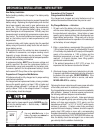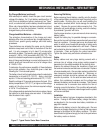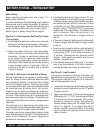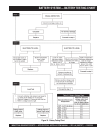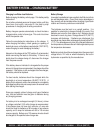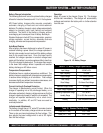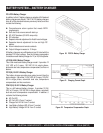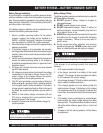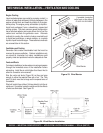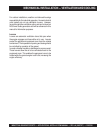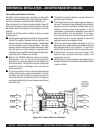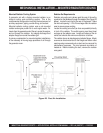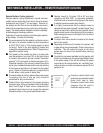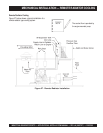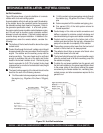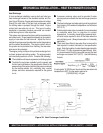
PAGE 60 — INDUSTRIAL GENERATOR SETS — APPLICATION & INSTALLATION MANUAL — REV. #4 (09/07/07)
MECHANICAL INSTALLATION — VENTILATION AND COOLING
Engine Cooling
Liquid-cooled engines are cooled by pumping coolant ( a
mixture of water and antifreeze) through passages in the
engine cylinder block and heads by means of an engine-
driven pump. The engine, pump, and radiator (or liquid-to-
liquid heat exchanger) form a closed-loop, pressurized
cooling system. The most common genset configuration
has a mounted radiator and engine-driven fan to cool the
coolant and ventilate the generator room. Alternate
methods for cooling the coolant include a mounted liquid
to liquid heat exchanger, a remote radiator, or a remote
liquid-to-liquid heat exchanger. These alternate methods
are covered later in this section.
Ventilation and Cooling
Generator Sets create considerable heat that must be
removed by proper ventilation. Outdoor installations rely
on natural air circulation but indoor installations need
properly sized and positioned vents for adequate air flow.
Vents and Ducts
For indoor installations, locate vents so incoming air passes
through the immediate area of the installation before
exhausting. Install the air outlet higher than the air inlet to
allow for convection air movement.
Size the vents and ducts (Figure 24) so they are large
enough to allow the required flow rate of air. The "free
area" of ducts must be as large as the exposed area of
the radiator.
Wind will restrict free airflow if it blows directly into the air
outlet vent. If possible, locate the outlet vent so the effects
of wind are eliminated. See Figure 23.
Figure 23. Wind Barrier
Figure 24. Wind Barrier Installation



